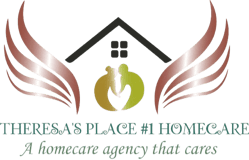When considering home care services for family members in Essex County, it’s essential to understand Medicare’s coverage limitations. Medicare does provide coverage for certain medically necessary home care services post-hospitalization, like skilled nursing and therapy, with a physician’s certification. However, personal care assistance isn’t typically included. Comprehending these nuances can help you make informed decisions, but what steps can you take to bridge the coverage gaps effectively?
Understanding Medicare’s Home Health Care Coverage
When evaluating Medicare’s home health care coverage, it’s important to understand the specific services and conditions under which they are provided. You need to know that Medicare benefits are designed to support medically necessary home care, guaranteeing that patients receive adequate treatment without hospital admission. To qualify, a physician must certify that you’re homebound and require skilled nursing or therapy services. The coverage focuses on short-term needs, typically following a hospital stay, rather than long-term care. Medicare benefits include a limited range of home health services, emphasizing rehabilitation and recovery. It’s vital to verify eligibility criteria and coverage specifics, as not all home care scenarios are supported. This guarantees you make informed decisions about your healthcare options under Medicare.
Types of Home Care Services Covered by Medicare
Medicare covers a variety of home care services, each personalized to address specific medical needs and promote recovery. Primarily, it includes home health services such as skilled nursing care, which focuses on providing medical attention and monitoring your health condition. Skilled nursing involves tasks like wound care, administering medications, and monitoring crucial signs. In addition to skilled nursing, physical, occupational, and speech therapy services are covered when deemed necessary for recovery. These therapies aim to restore your ability to perform daily activities and improve overall functioning. Additionally, Medicare may cover medical social services to support emotional and social needs. By focusing on these essential services, Medicare guarantees thorough care customized to individual recovery goals, enhancing the quality of life for beneficiaries at home.
Eligibility Criteria for Medicare Home Health Services

To qualify for Medicare home health services, specific eligibility criteria must be met, guaranteeing that resources are allocated to those in genuine need. First, your physician must certify that you’re homebound, meaning leaving your home requires considerable effort. This supports the eligibility requirements for home health services. Additionally, your doctor must establish a care plan, outlining the necessary services provided by a Medicare-certified agency. It’s essential to receive intermittent skilled nursing care, physical therapy, or speech-language pathology services. Moreover, your condition should necessitate part-time home health aide services. These requirements guarantee that Medicare prioritizes individuals with genuine medical needs, facilitating targeted and efficient allocation of healthcare resources. Understanding these criteria helps you navigate Medicare’s coverage effectively.
How to Access Medicare-Covered Home Care in Essex County
Although maneuvering through the healthcare system can be complex, accessing Medicare-covered home care in Essex County follows a structured process designed to guarantee effective service delivery. First, you need a doctor’s certification confirming the necessity of home health services. This verifies that the services align with Medicare’s requirements. Next, engage with local providers to determine their participation in the Medicare program, confirming they meet your specific needs. Finally, coordinate with Medicare and the chosen provider to confirm coverage and initiate services.
Navigating Medicare home care requires a doctor’s certification and coordination with local providers to confirm service coverage.
- Doctor’s certification: Verify the need for home care services.
- Local providers: Check their Medicare participation status.
- Coordination: Confirm coverage and service initiation.
This structured approach facilitates efficient access to necessary home care, promoting ideal patient outcomes.
Common Services Not Covered by Medicare
When evaluating Medicare’s home care coverage, it’s essential to recognize the limitations on personal care services, meal delivery, and homemaker assistance. Medicare typically excludes personal care unless it’s part of a skilled nursing service, which can greatly impact those who need help with daily activities. Additionally, the program doesn’t cover meal delivery or homemaker services, leaving gaps for beneficiaries who require extensive support at home.
Personal Care Exclusions
Maneuvering through Medicare’s coverage can reveal some surprising gaps, particularly in personal care services. Medicare’s coverage limits often exclude essential non-medical support, leaving you to navigate alternative solutions. Although Medicare provides some in-home health coverage, it typically doesn’t address personal care needs, which include:
- Assistance with bathing or dressing: These daily activities are vital but fall outside Medicare’s purview.
- Help with toileting and hygiene: Even though these are fundamental for maintaining dignity and health, they’re not covered.
- Supervision for safety: Ensuring a safe environment lacks coverage, despite its importance for many seniors.
These exclusions highlight the necessity for families to explore other funding options, potentially through Medicaid or private insurance, to fill these significant care gaps.
Meal Delivery Limitations
While managing Medicare’s coverage limitations in personal care, it’s important to understand that meal delivery services also fall outside the program’s support. Medicare doesn’t cover meal delivery options, leaving families to explore alternative resources. Analyzing meal delivery eligibility reveals that these services typically target those unable to prepare their own meals due to age or disability, yet Medicare’s criteria exclude them.
| Service | Medicare Coverage |
| Meal Delivery | Not Covered |
| Skilled Nursing | Covered |
| Medical Equipment | Covered |
| Homemaker Services | Not Covered |
This table illustrates the gap in coverage, emphasizing the need for families to explore community-based programs or private services for meal delivery. Understanding these limitations helps you make informed decisions about care options. It’s essential to evaluate other potential resources to guarantee nutritional needs are met adequately.
Homemaker Service Gaps
Why does Medicare fall short in covering essential homemaker services? Despite its extensive health coverage, Medicare has homemaker service limitations that impact many families in Essex County. Homemaker services, such as cleaning, cooking, and laundry, are typically categorized as non-medical support and consequently not covered. This gap creates significant caregiver support challenges for families who rely on these services to maintain daily living standards.
Consider these common gaps:
- Non-Coverage of Household Tasks: Basic home maintenance is excluded, forcing families to seek alternative solutions.
- Limited In-Home Assistance: Medicare focuses on medical needs, leaving essential homemaker tasks unsupported.
- Financial Burden on Families: Out-of-pocket costs for these services can be prohibitively high, straining family resources.
Understanding these gaps helps families anticipate potential challenges in caregiving.
Additional Resources for Essex County Residents
Essex County residents looking for additional resources to complement their Medicare coverage for home care services have several options available. Local support networks like community centers and non-profit organizations often provide invaluable assistance. These entities may offer services such as meal delivery, transportation, or companionship, which can fill gaps left by Medicare. Accessing resource directories is another effective strategy. These directories list available programs, services, and contact information, helping you navigate the complex landscape of home care options. It’s essential to stay informed about any changes in policy or new services by regularly checking these directories. Leveraging local support and resource directories can enhance the overall quality of care, ensuring you or your loved ones receive thorough home support.
Tips for Maximizing Medicare Benefits for Home Care

To maximize your Medicare benefits for home care, start by thoroughly understanding the coverage limits set by your plan. You’ll also need to navigate the eligibility criteria carefully to guarantee you qualify for the services you need. By doing so, you can effectively align your care requirements with your Medicare coverage, minimizing out-of-pocket expenses.
Understanding Coverage Limits
How exactly can you make the most of Medicare benefits for home care while contending with coverage limits? First, understand the coverage nuances, as Medicare doesn’t cover all home care services. Familiarize yourself with the specific services included and any exclusions. Awareness is key to avoiding unexpected costs.
Consider these steps to maximize benefits:
- Analyze service limitations: Know which services have caps or restrictions to plan accordingly.
- Utilize additional resources: Look into supplemental insurance or local programs that could fill gaps in coverage.
- Stay informed: Regularly review your Medicare plan details and updates to guarantee you’re utilizing all available benefits.
Navigating Eligibility Criteria
Why is it vital to understand eligibility criteria when maximizing Medicare benefits for home care? Knowing the specifics can make a significant difference in accessing necessary services. Start by reviewing the eligibility documentation to guarantee you meet Medicare’s requirements, such as being under a physician’s care and needing skilled nursing or therapy services. Accurate eligibility verification from your healthcare provider is critical. It confirms that you or your loved one qualifies and prevents unnecessary delays. Consider maintaining organized records of all relevant medical documentation. By doing so, you can quickly provide proof of eligibility if questioned. Understanding these aspects guarantees you’re not left without essential home care services, optimizing the benefits you’re entitled to under Medicare and reducing any financial burden.
Navigating Gaps in Coverage With Supplemental Options
While Medicare provides essential support for home care services, it often leaves gaps that can impact the quality and breadth of care available to beneficiaries. To navigate these gaps, you might contemplate supplemental insurance to enhance your coverage options. Supplemental plans, also known as Medigap, are designed to cover expenses not fully paid by Medicare, like copayments and deductibles.
Consider supplemental insurance to fill Medicare gaps, covering expenses like copayments and deductibles.
Here are some points to reflect on:
- Evaluate Different Plans: Compare various supplemental insurance plans to identify which best meets your needs.
- Understand Coverage Limits: Be aware that not all supplemental policies cover long-term home care services.
- Consult with Experts: Seek advice from insurance professionals to tailor a plan that aligns with your specific care requirements.
These steps can help guarantee extensive coverage.
Frequently Asked Questions
How Do I Find a Reputable Home Care Agency in Essex County?
You should start by researching home care options online and checking agency credentials. Look for reviews, accreditation, and state licenses. Contact agencies directly to ask about their experience and verify their reputation through reliable sources like healthcare professionals.
What Are the Costs Associated With Home Care Services Not Covered by Medicare?
You’re probably wondering about home care costs not covered by Medicare. Expect additional expenses for personal care, housekeeping, or meal services. Research shows these costs vary widely, so it’s crucial to budget carefully and explore all financial options available.
How Can I Ensure Quality Care From Caregivers in Essex County?
To guarantee quality care, verify caregiver qualifications through certifications and references. Implement quality assurance measures like regular performance reviews and feedback sessions. Analyze caregiver performance data to make informed decisions, guaranteeing consistent, high-quality care in Essex County.
Are There Local Support Groups for Families Managing Home Care?
You’ll find local support group resources by connecting with family caregiver networks in Essex County. These groups offer evidence-based guidance, fostering community and ensuring you’re not alone in managing home care responsibilities effectively.
How Often Should I Review My Home Care Plan for Updates?
You should conduct home care reviews and update your care plan quarterly. Evidence suggests regular evaluations guarantee effective care and adapt to changing needs. Consistent updates can improve outcomes and guarantee your loved one receives the best support possible.
Conclusion
In conclusion, understanding Medicare’s coverage limitations is vital for Essex County families seeking home care services. While Medicare covers essential medical services like skilled nursing and therapy, it doesn’t extend to personal care tasks. To maximize benefits, verify eligibility criteria are met and consider supplemental insurance or local resources to address uncovered needs. By proactively managing these gaps, you can effectively manage your family’s home care requirements while staying informed about available support options. For families looking for trusted assistance, Theresa’s Place #1 Homecare can help by providing compassionate, personalized care that fills in where Medicare coverage falls short.

